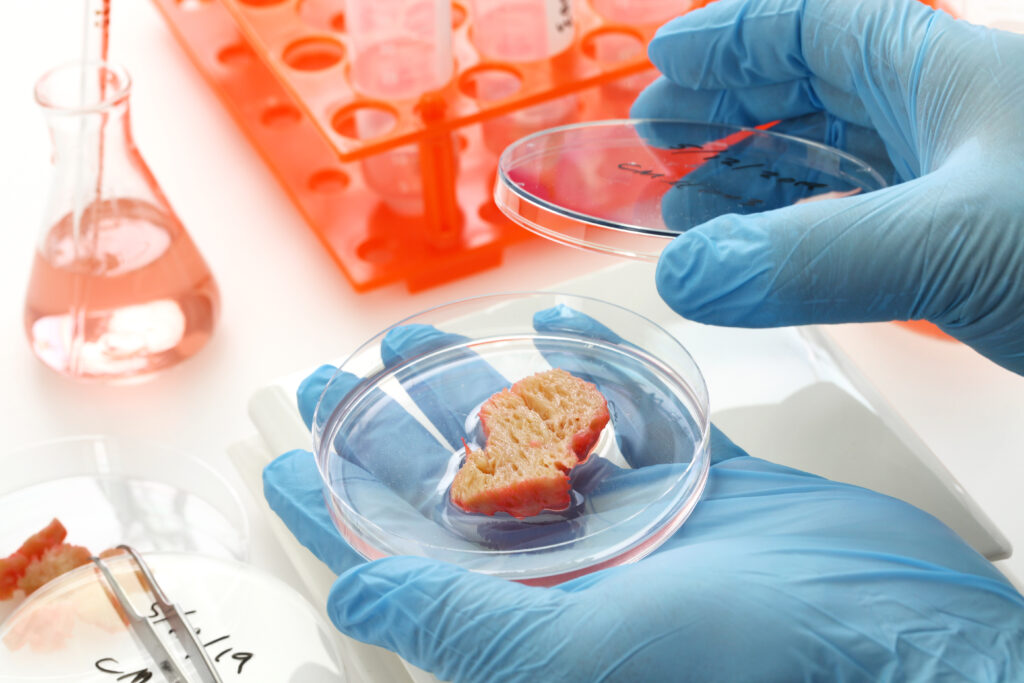American fast food chain KFC is working toward creating the “world’s first laboratory-produced chicken nuggets,” according to a company press release. They won’t technically be vegetarian, unlike some other lab-grown meats, because they will include actual chicken cells.
To create this “meat of the future,” the chain is partnering with Russian startup 3D Bioprinting Solutions to use “chicken cells and plant material” to print nuggets layer by layer. The approach is more ethically and environmentally sound, KFC claims, as it reduces the need for farming animals.
Related: No Cows Were Harmed in the Making of This New Vegan Ice Cream Brand
Invitro, a 3D Bioprinting Solutions, creates multifunctional 3D printers including bioprinters that are able to produce tissue and organ-based products. Founded in 2013 by Russia’s largest private medical company, the firm’s 3D printer was tested to print human cartilage tissue and a rodent thyroid gland aboard the International Space Station (ISS) in 2018.
Back here on Earth, the company is focusing on 3D-printed, lab-grown chicken nuggets. KFC and the Moscow-based company will aim to create cell-based chicken “as close as possible in both taste and appearance” to the restaurant’s original product while remaining environmentally friendly.
KFC began exploring 3D printing as a means to produce the “meat of the future.” Prompted by “the need to develop more environmentally friendly methods of food production,” KFC wanted to cater to rising consumer demand for alternatives to traditional meat.
The laboratory-produced chicken nuggets will be made up of tissues grown from chicken cells combined with plant material to replicate the taste and texture of typical chicken. The bio-printed meat will then be spiced and breaded “to achieve the signature KFC taste,” the food chain said.
KFC has already demonstrated its need to innovate with the upcoming US launch of its plant-based ‘fried chicken’ developed by Beyond Meat, a company that produces and markets plant-based alternatives to meat.
The mass production of lab-grown food is a challenging prospect, but due to environmental and animal welfare concerns of raising livestock and poultry to cater to meat demand, the idea is being widely explored.
Producing so-called cultured meat to replace farming of pigs, sheep and cows could cut greenhouse gases by up to 96 percent, according to a 2011 study. Researchers also estimate that the production of cultured meat could eventually require 45 percent less energy, 96 percent lower water use and 99 percent lower land use than conventional animal agriculture.
Poultry would take more energy to produce in this way, but require far less water and land than traditional chicken rearing.







Join or login to leave a comment
JOIN LOGIN